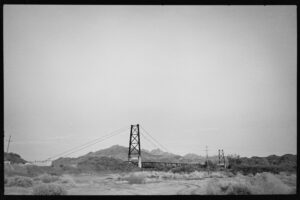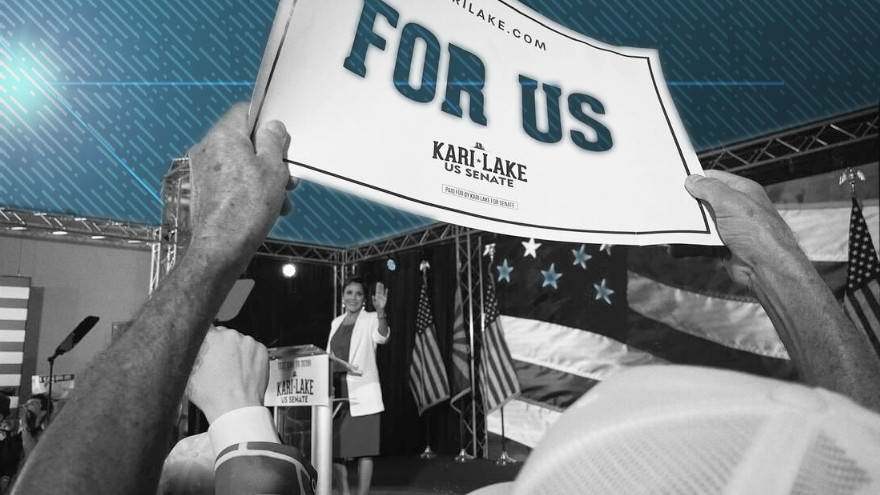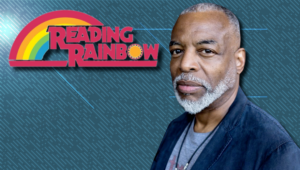The agent climbed down into the drug tunnel at the border wall in Arizona. He didn’t have to, but his curiosity got the best of him. It was big enough for one person to squeeze through. The desert sand spilled-in around him. He’d spent enough time in the desert along the wall to start calling the sand “moondust.” Arizona, especially in the summer, seemed inhospitable, like some big dead rock in outer space. In July, the temperature could hit 116 degrees. The sunbaked ground is even hotter. The extreme heat made it hard to breathe.
The walls inside the tunnel were fortified with timber. A good deal of work and planning had gone into building it. The more the moondust filled in behind the agent, the darker it got, until there was no light. He tried to spin towards the entrance and climb back out of the hole but the moondust made the floor feel like it was disintegrating beneath him. Finally, a hand reached down to pull him out.
Border Patrol has found similar drug tunnels in San Luis, Nogales, and San Diego.
Drug runners will crawl all the way through these tunnels from Mexico to their destination in the States. In one case, a tunnel went into a bathroom at a KFC. There was a hole only big enough for a hand to reach through and drop the drugs into the restroom. The drug runner would then crawl backwards to Mexico. Some of the agents refer to the Mexican side of the wall as “the south side.”
According to the Border Patrol’s Public Affairs Officer that I spoke with, Mexican cartels are trafficking drugs and humans all along the southwest border. They believe there are factions of cartels that are warring over territory for drug smuggling. South of Tucson, in Nogales, large amounts of fentanyl are seized almost every day. Pills and powder in excess of a million dosages. Sometimes the drugs are taped to the bodies of drug mules—people paid or forced to smuggle drugs over the border. Sometimes the mules will conceal the drugs inside their body cavities such as fentanyl wrapped in two condoms. Agents also say they seize a good deal of heroin and cocaine, but it’s far less frequent than the fentanyl.
According to the CDC, approximately 150 Americans die a day from fentanyl overdoses. The DEA claims to have seized approximately 60 million “fentanyl-laced pills and more than 13,400 pounds of fentanyl powder” in 2022. According to ABC Arizona 15: “Provisional data from the CDC shows that drug overdose deaths in Arizona have been on a continued upward trend since 2017. A spike in overdose deaths began in April 2020 at the start of the COVID-19 pandemic. During 2022 overdose deaths rose as high as 41% in year-over-year data published monthly. The most recent data reports that the state had 2,723 overdose deaths from April 2021 to April 2022.”
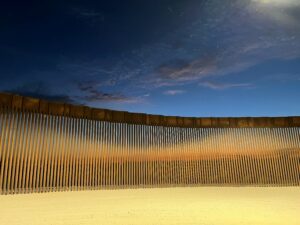
My first view of the border wall was from the top of the sand dunes in Yuma. From a distance, the wall looked like a giant serpent stretched out across the moondust. This particular stretch of the border wall is something that the border patrol refers to as “the floating fence.” That’s because the sand dunes constantly shift and they have to raise or lower the wall depending on the sand. The wall couldn’t be driven down into the ground because of the way the ground constantly disintegrates below it.
You can see the highway on the south side through the wall. This is where many people are dropped off and then walk right to the border. There are some makeshift “businesses” set up along parts of the highway that sell things like camouflage clothing, water, Gatorade, and cigarettes.
Depending who you ask down here, there are varying ideas on how many illegal immigrants fly into the Mexicali airport and then get driven to the highway on the other side of the wall. Some people claim it’s the majority of the people crossing the border into Yuma, meanwhile others, like the Border Patrol PAO, believes the airport is too far for them to walk or be driven to the wall—however, when I’m standing at the wall in Yuma the weather app on my phone keeps thinking I’m in Mexicali. The airport is about a fifty-minute drive. It seems plausible, but no one really knows since there is no way to quantify. The majority of people apprehended at the wall don’t have ID on them—there are an insane amount of IDs and coins and clothes and shoes and headphones littered along the wall. It’s a landfill of debris from illegal immigrants.
People walking from Mexico into Yuma have a few options of getting past the wall. Some can walk right over the portions that have yet to be built. Others can walk around the wall into the Cocopah Reservation and into Yuma. (The Cocopah reservation is sovereign land. They have no wall, but they do patrol their border—though it’s hard to gauge to what degree it’s patrolled. I’ve attempted to speak with their authorities with zero luck.) Other migrants bring ladders with them and climb over the wall.
Border patrol has set up stations along this side of the wall with bottles of water, portable restrooms, and tags for any luggage people carry with them into Yuma. It resembles TSA but in the desert. Belts and shoelaces are removed from the immigrants who are taken into custody because they could potentially be used as weapons. You’ll find piles of shoelaces scattered across the dirt road along the wall.
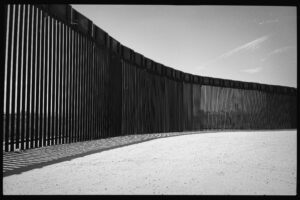
Border patrol will then put the immigrants in a van and drive them to the processing center at Yuma HQ.
Agents will attempt to identify individuals, but there’s no real way of doing this for everyone—unless the person who’s been apprehended is a repeat offender on this side of the wall, meaning they’ve crossed already and been kicked out. If that’s the case the database of fingerprints and headshots will alert border patrol that this person has been here and already been kicked out.
I walked into Yuma HQ to ask if I could see the processing center. I was greeted by two uniformed supervisors. They said I’d have to submit to a background check. It could take weeks or even months for a background check to be approved. I did not have time for that. Even worse was the fact that if I were ever approved for a background check, that would only grant me access to a pre-approved “media tour” of the processing center. It sounded like that sort of “tour” might end with the kind of photo-op AOC did when she shed those tears by the fence outside a processing center.
“What’s your story about?” one of the supervisors asked me.
“It’s about the border,” I said. “But what about the border?” the other asked.
“I don’t fully know yet, I have to see everything first to see where the story goes,” I said.
“Are you writing for yourself or for a media outlet?”
“Would my answer affect your response?” I asked.
*
I connected with Kari Lake in Scottsdale, Arizona after she announced her run for Senate. I told her there seemed to be a scourge of incompetence happening at the border wall.
Lake read me the following letter that she received from a border agent. Name withheld for privacy.
I just wanted to drop you a quick note about the situation at the Nogales border patrol station. In Arizona, the station has lost operational control of the border at its areas of responsibility. There are no agents at the border for more than 16 hours a day, the station is not keeping track of the people that are coming over the fence and just turning a blind eye… And I have done this job for more than 13 years. I take pride in what I do. Because we do make a difference in the safety and security of our country. There are many other agents who feel the same as I do. We need help to expose what’s going on. And I’m really surprised that it’s not making the news…
“That was the main theme of my governor’s race: the border,” Lake told me. “We have to secure the border and States can do it. If we look to the document that our country was founded upon the Constitution, Article One, Section 10, clause three, that’s why they had to steal the election. They knew that this racket, which is an intentional invasion of our country, could not continue if I were the governor of Arizona. And that’s why they’ve had to stop me… We’re going to see more violence spill out into our cities and neighborhoods. I think people will very quickly realize that Trump was right about the border. I’m going to go to DC and we’re going to get that done.”
“What else do you propose to stop the flow of fentanyl across the border?” I asked.
“We need to look back at the policies President Trump had. Enforcing the laws that are on the books. We have to get back to doing that. A lot of these Soros-funded DAs make it impossible… I talk to police all the time. They arrest somebody who’s known for drug trafficking, known for human smuggling, they do all of the work, and then only to see the case get dropped. It’s frustrating for law enforcement. We have to enable a law enforcement to do the work…” she said.
“The one thing that a few of the candidates at the [second] GOP debate proposed that I have a hard time wrapping my head around is when say they want to send special ops into Mexico,” I said.
“I think we need to create a special border court,” Lake said. “To deal with this right now. We send these people into our country and their court dates are 12 years down the road. Do you really think someone is going to show up for court date in 12 years? I know that President Trump will work with Mexico to stop people from coming across… That’s the kind of leadership we need. I think that Joe Biden wants this invasion. And I really do believe he does not have America’s interests at heart.”
“I was pretty sure [President Trump] was going to pick you for Vice President. So, I was surprised when you announced your run for Senate,” I said.
“I think the whole VP talk is a creation of the media,” she said. “President Trump is not thinking VP right now. He’s thinking, beating Joe Biden. Beating back these outrageous witch hunt lawsuits that are coming at him… and indictments. I can’t believe our government is being used this way. He’s got a lot on his mind. I want to go to DC and help President Trump’s agenda… If we don’t get the majority in the Senate, we’re looking at the Democrats stacking the court. We’re looking at DC becoming a state and Puerto Rico. We’re looking at losing our country… I didn’t want to jump into this, believe me. It’s grueling. It’s ugly. I can’t even believe how slimy politics is. My husband and I spent a lot of time discussing this after the last election. And as soon as we started to make a decision, we realized that, you know, yeah, wouldn’t it be great to get back to our old life where we didn’t have to worry about everything, and we don’t worry about the country and all of that, but that’s not an option anymore. Everything has changed. We’re in a season for saving this Republic.”
“On the day you announced your run for senate, a lot of the establishment types in media were saying that you have to change your tone on election fraud. Do you feel that way? Do you worry about how you can embolden people to vote after so many don’t trust elections?”
“Change my tone?” Lake asked. “My tone has always been very calm. I think I’m with the people. We want to have honest elections. In 2016, the Democrats were crying foul. And now everyone’s crying foul. The majority of Americans believe our elections are fraught with fraud. And that’s our problem moving forward. If we don’t have honest elections, we don’t have a country. So, I’m going to continue with my court cases—I have several, I don’t plan to abandon those legal cases—I’m fighting in the arena that I can, which is the legal system. I’m fighting for honest elections. I can multitask. I’m a mom, I’m pretty good at that. I will continue with my cases while I run for the United States Senate. It’s meant to keep outsiders out of politics. They don’t want ‘we the people’ entering the political arena. They want the political insiders in there making backroom deals. They don’t want sunlight exposing what they’re doing. And the media lies about me, they call me extreme. I don’t think there’s anything extreme about wanting a secure border. What’s extreme about giving kids access to trade school training? What’s extreme about wanting to handle the water crisis [out west]? I don’t know what’s extreme about wanting to tackle the homelessness crisis. They call me the most dangerous politician in America, right? Because they are worried about another outsider like Trump.”
“They created a caricature of people like you or Trump,” I said. “And they have to suppress you, because once you speak, it subverts that image they created of you… I think we’re entering the age of pissed off mothers. I believe there’s a lot of women who consider themselves former liberals, whatever that means these days, and they might have an easier time supporting an independent candidate for president such as RFK, Jr. What would you say to those women? Why do you think it’s important to support a Republican or conservative candidate like you or President Trump over the quote-unquote independent candidates?”
Lake said:
I’m an America first candidate. That means I want a strong country. I want our most important institution in our country, the family, to be strong. Every policy pushed by the Biden administration is hurting our families. [Arizona Senator] Kyrsten Sinema might be calling herself an independent right now, but trust me, her voting record is incredibly liberal. Those policies are hurting our families and hurting our children.
We’re not getting quality education for our kids. There’s nothing extreme about wanting our kids to go to school and learn the fundamentals. And not be brainwashed into changing genders. This is not education. Education means preparing our kids for the future for the jobs that are out there. My education plan is similar to what it was when I ran for governor, and I’m gonna push this at the federal level, we want a world class education. We want to return to the fundamentals: math, science, language, and we want to have skill training, trades, career training, all available to our kids—and if they want to opt out of college to do a trade school and not have to get saddled with college debt, we want to make that easier.
I was also the only Governor candidate concerned with the homelessness. We need to find a way to make sure our streets don’t look like a zombie movie. That means we have to ban urban camping. Nobody should be living in a tent on the street. We need to get help for these people. But we also need to have consequences when crimes are committed. We can’t have people shooting up drugs on the street and taking over our parks. We have families that just go ‘wow, we have a beautiful park down the street, but we wouldn’t dare take our kids there.’ It’s overrun with junkies. I’m running against Rep. Ruben Gallego, who, as a congressman, has the biggest, fastest growing homeless population and encampment sites right in the middle of his district. And he has not done a damn thing.
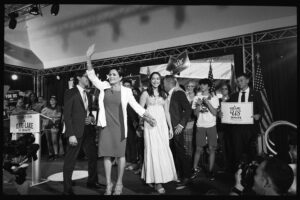
“When it comes to the institution of the family, you said at your senate run announcement about the idea of a woman going to the abortion clinic because she felt like she can’t afford a child—only to come home and see that Biden sent billions of dollars overseas. I appreciate that you aren’t shying away from the abortion issue. I’m interested in how you think you could use that money to support women,” I said.
“We talk a good game about wanting to save babies lives. And we don’t do a lot to try to help women make a better choice. You know, the left says they are pro-choice. They’re no choice. They use language to twist the issue, which is the taking of the life of a baby. When a scared woman walks into an abortion clinic, maybe she’s afraid because she doesn’t feel that she can afford to have a baby. Maybe it’s that she doesn’t feel that she’s capable of being a mother. She’s too young, or she doesn’t have the ability to be a mother. These clinics don’t give the woman any choices. If you ask a woman who’s had an abortion about her abortion, many of them take that regret and that sadness and sorrow to their grave. I want to prevent that for those women because I think being a mother is the greatest miracle… So, President Trump calls it a baby bonus, you might call it a tax credit. When we support our families and make it easier for families to afford to raise families, then we’re going to bring down the number of abortions. Our culture has gone anti-family, and the family is the greatest institution for stability in any country.”
“So, when it comes to the Republicans also running for this senate seat in Arizona, you’re running against Sheriff Mark Lamb. Why should people support you over him?” I asked.
“I think I understand the issues better than Sheriff Lamb. I think I’m a better candidate than Sheriff Lamb. I believe Sheriff Lamb is needed as the Sheriff. Frankly, we can’t afford to lose him as Sheriff. And I’m looking forward to hopefully him supporting me,” Lake said.
“Can you expand on something you said at the announcement?” I asked. “You said, ‘We should be honored that we were placed here at this historic moment.’”
“I’m a woman of faith,” Lake said. “I believe that God does not make mistakes. We could have been born 150 years ago, 100 years ago, but the fact that we are all born at this moment—it’s pretty consequential. Nobody would deny that we’re living in consequential times. And the fact that we’re here for it, I mean, just to witness it is something, but to be part of it, where we actually can be here to enact the kind of change that we need to save our country. We’re at a pivotal moment. God placed us here and stirred something in our souls to get involved. It is pretty special. We’re not alone. We have God with us, and we have each other and our movement is growing. That’s what I meant. It’s really easy to get bogged down in the bad news. But it’s hard to remember sometimes that we’re here for a reason. And we’re so blessed to be here. We’ve never been closer to taking our country back. We’ve never been closer to saving this Republic, we’ve never been closer to getting our rights and freedoms restored.”
*
Back in Yuma, I spent another night at the wall. The agents on duty that night weren’t too fond of my presence. This group was like a bunch of territorial thugs paid to bully anyone other than illegal immigrants.
“What are you doing?” one agent asked. There weren’t any lights or sirens when they pulled me over, they’d just slow down as they passed, roll down their window, and begin these pseudo interrogations in the desert. This officer got outside of his patrol van to make a show of authority. There was another patrolman in a truck whose face I could not see.
“Do you see a lot of ladders like that?” I asked and pointed to a pile of crumpled up ladders along the wall.
“I don’t know what ladders you’re talking about,” he said. His young face could not hide his inability to lie.
He turned to his colleague in the truck and said, “He’s asking about the ladders.” Then he looked back at me and shrugged.
There was this strange and absurd thing happening every day at the wall. Some call it an invasion. Some call it a humanitarian crisis. And me and this agent did this weird dance where he acted like it wasn’t anything—actually denying the existence of ladders used by illegal immigrants piled up near the wall. It was like when I checked into my hotel in Arizona, and it was still under construction. A jackhammer pounded away loudly at the floor just behind a curtain in the lobby. The clerk acted as if there was no jackhammer screaming and ripping up the floor. He didn’t even raise his voice to adjust for the volume.
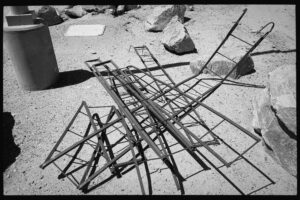
It was Sunday, and I found a church that offered relief from the desert heat. I’d spent so much time walking along the border wall that the moondust melted the soles of my boots.
John and Louis Wolfe sang a duet on the church stage. A white-haired woman played the grand piano. A big white cross stood in the parking lot along the road. Dust clouds shook the church. The usher held the door shut tight to keep the wind from swinging it open. Once the service started, he locked the doors, so he didn’t have to keep pulling them closed. All the windows were covered in thick red curtains to keep out the sun. Occasionally, the usher peeked behind the curtains to see if anyone was waiting to get in. Down the road, there were men at the shooting range aiming at the mountains. I wondered if anyone was crawling in tunnels below our feet.
I saw a mural for the “Bridge to Nowhere” at the Yuma airport. I wondered if that was some kind of metaphor for a border town, but it turned out to be a real thing. Down the road from the church, there is a literal bridge to nowhere in the desert. It’s a big suspension bridge surrounded by moondust. It’s like a dystopian symbol of what feels like a society on the verge of collapse. Or some kind of sick joke to the immigrants spilling over the border, like, ‘Hey, this American Dream is all but dried up—you might get across the border, but this place is rapidly declining into one big nowhere.’”
